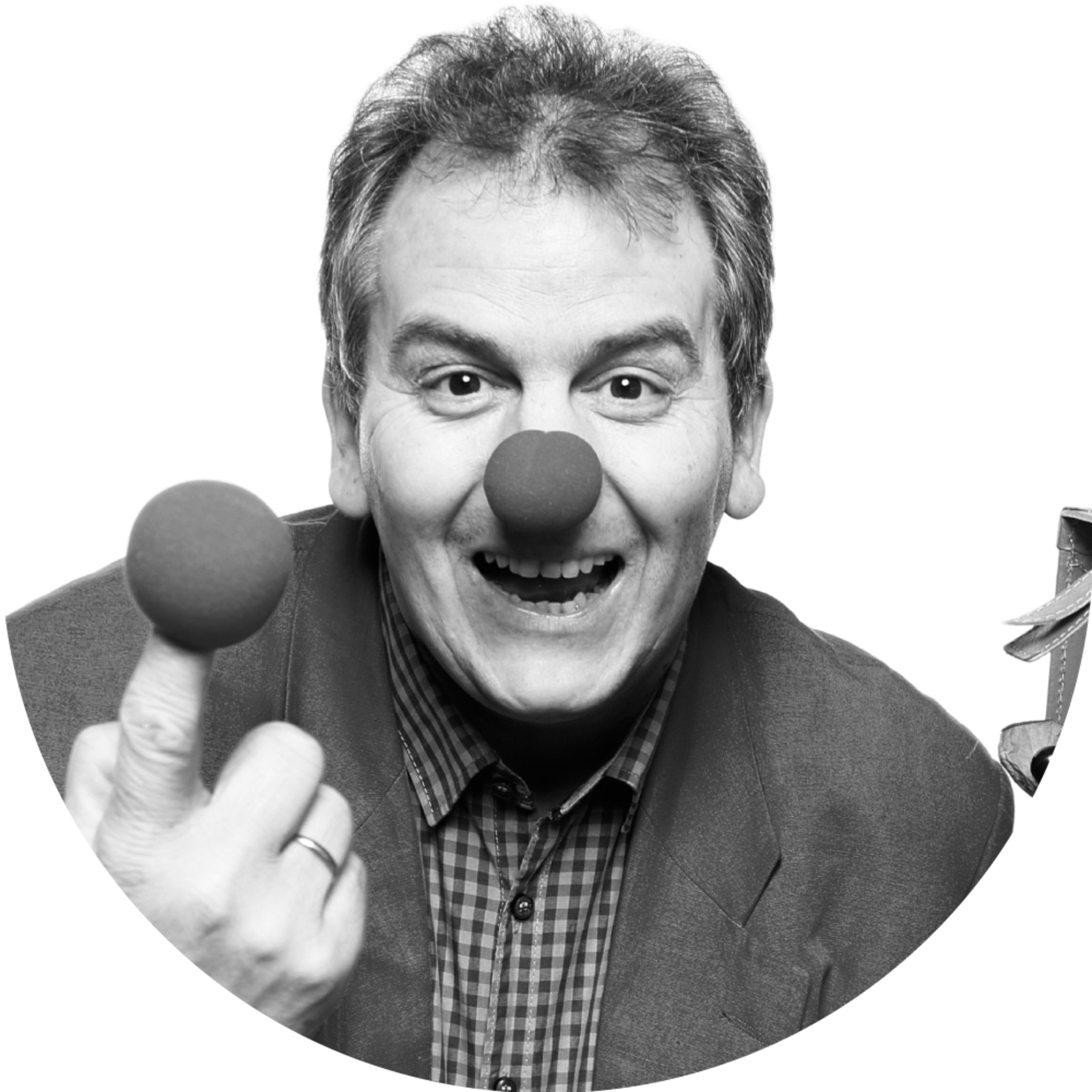5 Questions with Ludger Hoffkamp

In hospitals and care facilities, people need moments of hope and humor to get them through difficult times. That's why clowns go into hospitals.
But also in our professional life, our work makes us happier when we meet each other with humor and a blinking eye. Ludger Hoffkamp works as a hospital clown and humor coach, knows why humor helps to heal and why our everyday work life succeeds better with positive psychology.
Often people forget to laugh in the stressful daily work life. How do we manage to include humor in our daily office routine?
By surprising each other every now and then with compliments, with little thank-yous. It helps to be a little crazy, to do something different and puts a smile on the other person's face. Just walk through the office with a red nose, without looking left and right, just like that. An idea: "I put something nice/funny on the workstation for the others and don't tell them that it was me. This triggers joy and curiosity...
What are the conditions for activating and sustainably influencing well-being with a laugh?
To begin with, humor is more than jokes or laughter. First, humor needs empathy so that it can have a good and, at best, healing effect. You have to empathize with the other person so that a "joint attention" (a neurobiological term) can develop. When people feel connected and have a positive connection, humor can be well received by the other person. If we are able to laugh together or simply enjoy being together, trust develops. This is what is needed in health care and other professional contexts.
Humor is a belief that life is good to me. Humor and trust are the foundation on which we can build and endure many difficulties.
You offer seminars for nursing staff and, as the clinic clown "Kampino," you visit patients in the elderly and health care sector. What is your motivation for doing this?
Actually, I am a counselor from home. That's what I always wanted to be. One of the things I learned from Eckart von Hirschhausen, for whose foundation "Humor hilft heilen" (Humor helps healing) I work, is that it is often better to think about positive things, about resources and strengths, instead of always thinking about illness and worries. In fact, this ensures a better state of mind. Since I've been a clown, I feel like I've been a positive psychology counselor. Both when playing clown in the hospital or in geriatrics, I notice that people quickly open up and show their hearts to each other. In the seminars, the participants often have a lot of fun and feel motivated again for the nursing profession, because they can contribute more humanity in nursing through joy and humor. It makes me happy to be able to take part in this.
How have the last two years affected your work?
Corona was and is hard for everyone. At first, it was a shock for us clowns and humor coaches, too. But very quickly I started working with online seminars on humor. It went better than I thought. And with police permission I visited the birthday children in my hometown at a distance, which caused a lot of joy, for them and for me. Now we play in the institutions again as clowns with masks and feel that we are needed more than ever. Children are hungry for joy, but so are the elderly. Those who laugh cannot think at the same time. We distract people from Corona and that is good. Humor helps to process difficult moments, which are often associated with negative emotions. We try to add a pleasant cocktail of hormones to people's brains.
Especially in Corona times, the nursing students were happy to be able to laugh a lot in our seminars and to get positive impulses.
The Foundation “Humor Hilft Heilen” supports your commitment. What support would you like to see from our readers?
That they spread the word about us and take an interest in our work. I wish that they would embrace the impulses that humor and positive psychology give us in order to have a good working atmosphere. I wish that they invite us to tell them about our work and how we can benefit from it in other work contexts.
I also wish that many also support us financially, as parsionate has done many times.
"Humor Hilft Heilen" is on the road throughout Germany. Those who help us support humanity in hospitals, in care and in research.
Our world needs the humane in human medicine, but also otherwise: everywhere in our lives. Especially in Corona times and beyond, it is important that we nurture humor and take it "seriously." Taking humor seriously sounds like a contradiction. I like contradictions. Humor is the contradiction against too much seriousness and says YES to life.